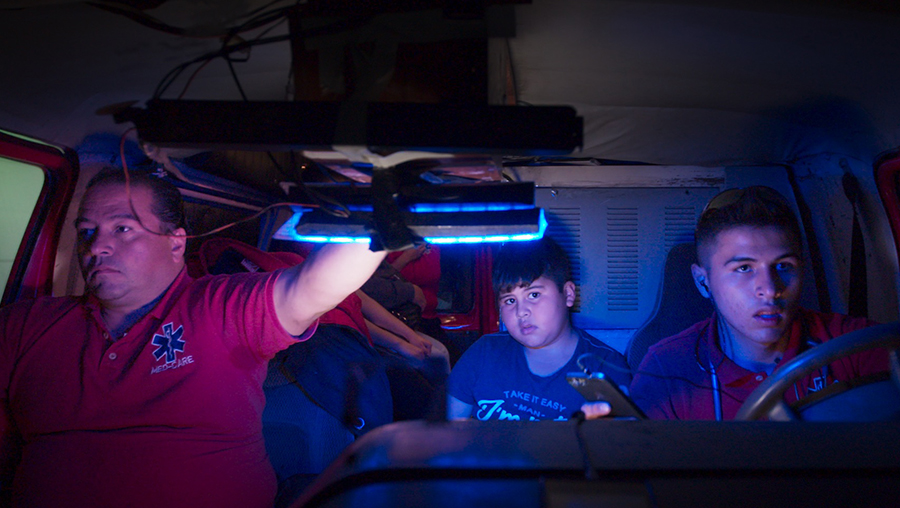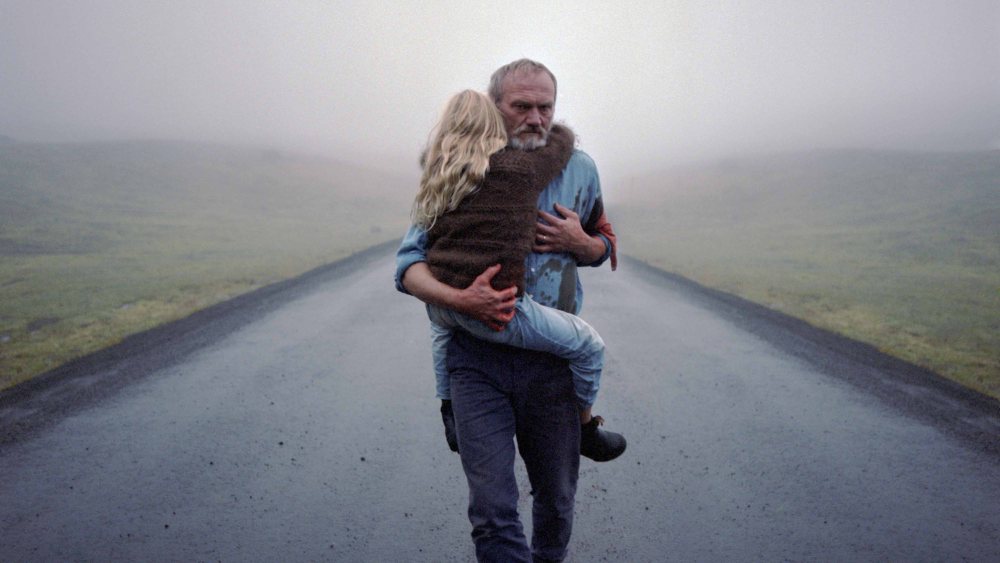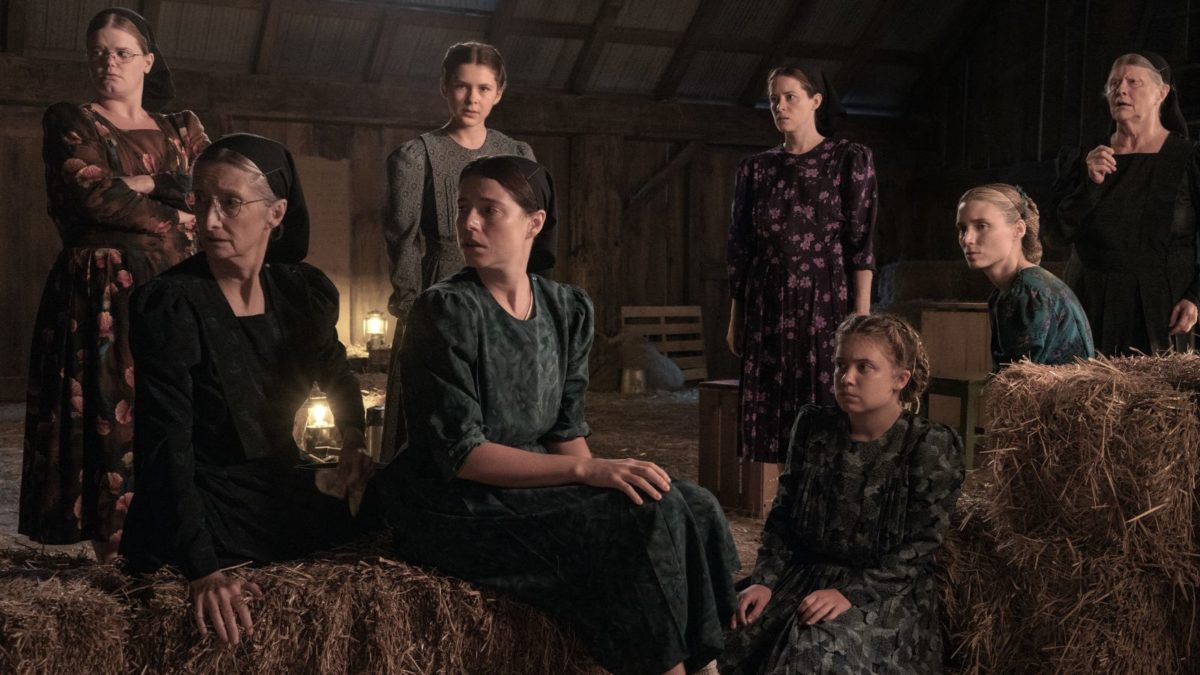Each week we highlight the noteworthy titles that have recently hit streaming platforms in the United States. Check out this week’s selections below and past round-ups here.
Jackass Forever (Jeff Tremaine)

Jackass has been in our lives for more than two decades. Since October 2000, when the original show premiered on MTV, Johnny Knoxville and his gaggle of goofballs have appealed to lowest-common-denominator comedic impulses. They’ve slammed their testicles into things and had them slammed into by other things. They’ve gleefully dove into danger and gotten legitimately hurt. They’ve aggravated and disturbed an entire generation of people who got Reagan and Clinton elected. But then, for another generation, they brought laughter and some earnest sense of camaraderie. Since the halcyon days of the show (which Knoxville quickly ended himself after the ire of a boomer nation called for censorship), Jackass has endured in cinematic form. The first film saw surprising box office returns amongst a slew of negative critiques. The reputation of the gang and its stunts only improved while the money continues rolling in. Why is this? – Dan M. (full review)
Where to Stream: Prime Video
Marlowe (Neil Jordan)

The key to understanding the new Philip Marlowe film is being aware that it’s not based on an actual novel by Raymond Chandler but a 2014 exercise by Irish mystery writer John Banville to replicate the style of that legendary author. This picture, somewhat of a beguiling genre experiment that seemingly nobody asked for, initially seems like a bad throwback, but in its game of telephone through adaptation ends up, actually, something of a moderately funny joke. – Ethan V. (full review)
Where to Stream: VOD
Midnight Family (Luke Lorentzen)

The startling fact that there are only 45 official ambulances amongst Mexico City’s 9 million-plus population sets the intense, harrowing stage for Midnight Family. Following one family that runs their own operation, Luke Lorentzen takes an intimate look at the dedication required for such a task with a keen eye on the economic toll. With patients not requiring to pay, even if they may have died if not for this medical help, it creates a complicated situation when asking for the bill–and that’s only if they can beat out all the other private ambulances racing towards the scene of an accident. While one wishes this portrait was a little more fleshed out, the snapshot we get certainly sends a jolt, particularly in an unforgettable scene involving familial neglect. – Jordan R.
Where to Stream: Le Cinéma Club
Obsession (Brian De Palma)

The camera tracks towards a gate leading to a Victorian mansion, the shot coming to center on the home’s front door. It’s the evening and lights are on in the house, tinting the window in the door a translucent yellow. This block of color is interrupted by an alternation of total blackness and person-shaped silhouettes, evoking the action of a shutter masking a frame of a film strip as it passes by the aperture of a projector. This shadow play veils the activity occurring inside the house: a slideshow of photographs. Thus begins the post-opening-credits scene of Brian De Palma’s Obsession. In this reading, it functions as a metonym of the film’s concern with dissimulation, an abiding theme in De Palma’s body of work. Perhaps, in bringing to mind the operation of the film apparatus, this image is also the director’s ontology of cinema. – Samuel A. (full review)
Where to Stream: MUBI (free for 30 days)
Triangle of Sadness (Ruben Östlund)

Ruben Östlund might like his fish in a barrel but he’s a ruthless shot. Following a Palme d’Or win for The Square, the Swedish filmmaker returns to Cannes in competition, and if the contemporary art scene had taken the brunt of that sometimes brilliant, sometimes baggy film (the rare example of an art satire that actually worked), his latest has both the fashion world and the 1% solidly in its sights. With a title derived from an industry term for the worry lines on a person’s forehead, Triangle of Sadness is a film as vast as the sea itself, Östlund’s first real epic. It is his White Lotus, his “wafer-thin mint,” and his Discreet Charm of the Bourgeoisie rolled into one: a scatological rinsing of wealth and hubris from a filmmaker who, with each passing effort, only further cements himself as contemporary cinema’s auteur of such things. – Rory O. (full review)
Where to Stream: Hulu
Watcher (Chloe Okuno)

Ever since It Follows, the 2014 horror movie about a spectral grim reaper stalking a teenage girl, Maika Monroe has become her generation’s avatar of fear and paranoia. Throughout her filmography, she boasts an inner world of melancholy that begins in a delicate register and then multiplies into a feverish anguish the farther her characters tumble down their own rabbit holes. It’s the kind of psychological spiraling that gives oxygen to director Chloe Okuno’s feature debut, Watcher, a chamber piece thriller and the latest gaslighting parable to champion Monroe’s specific set of skills. – Jake K. (full review)
Where to Stream: Hulu
A White, White Day (Hlynur Pálmason)

The phrase a “white, white day” refers to a moment when the landscape and sky are so dense with snow, mist or fog that it is no longer clear where the two meet. In Iceland–where this bleak meteorological phenomena often occurs–there is a saying that on a day like that one can converse with the dead. Hlynur Pálmason’s second feature A White, White Day begins with that saying. We then witness a death on one such day as a car veers off the road. The woman driving is–or rather was–the wife of the local police chief. Pálmason’s excellent new film is an examination of that man’s stages of grief. – Rory O. (full review)
Where to Stream: Film Movement+
Women Talking (Sarah Polley)

With Women Talking, Sarah Polley adapts Miriam Toews’ 2018 novel in a way that feels like a response to the last several years. The book, which concerns women in a Mennonite colony deciding whether to leave their community and the men who spent years assaulting and raping them, published after the downfall of Harvey Weinstein and the formation of the #MeToo movement, which made its subject and themes reverberate around topics that were, and still are, at the forefront of media and public discourse. Polley leans hard into the bigger ideas, making her film less of a chamber piece and more a fumbled commentary on where we are now. Schematic in its intent and pedestrian in its execution, Women Talking is a well-meaning drama that’s obvious in all the wrong ways. – C.J. P. (full review)
Where to Stream: Prime Video (through Sunday at midnight ET only)
Also New to Streaming
Hulu
Broken Arrow
MUBI (free for 30 days)
Hardcore
Kedi
Magdalena Viraga
Zeros and Ones
The Cat Has Nine Lives
Queen of Diamonds
Prime Video
The Silent Twins
VOD
Of An Age
Missing
